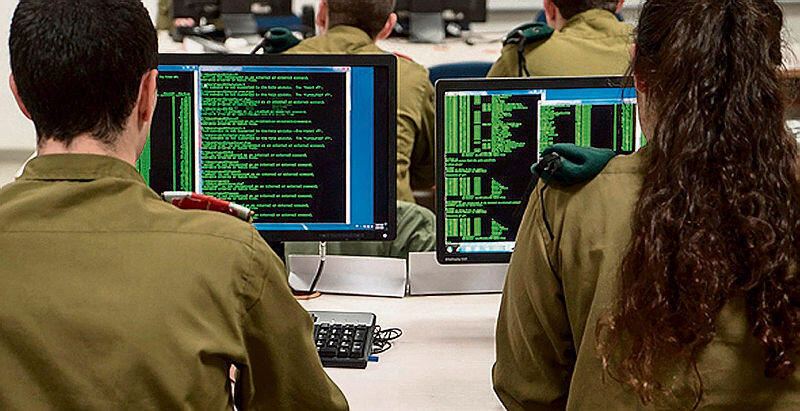
ISRAEL AT WAR
Cyber reputation at stake: Will Israel's intelligence failure hurt Israel’s cyber image?
The current war with Hamas opened with a surprise attack that presented an unprecedented intelligence failure. Now the question arises of how this will affect the Israeli cyber companies that are made up of former intelligence units. According to senior officials in the field, it’s still too early to tell
The IDF’s 8200 unit can rattle off a long list of every investor who has ever come to Israel to look for cyber investments. The large Israeli intelligence-gathering unit has built an international reputation for itself and has become synonymous with Israeli sophistication. A variety of other technological units operate alongside it, all of which have become homes for people in the Israeli cyber industry - so much so that both venture capitalists and corporate security managers (CISOs) know how to differentiate between the various units that deal with cyber when they examine the degree of seriousness and skills of the startup founders. Sometimes, their military past is enough to get a high value.
But on October 7th, even this conception was shattered to pieces. The unfathomable failure that allowed the massacre along the Gaza border is extensive, both strategic and tactical, but it is difficult to ignore the failure of all intelligence systems, including the collapse of the perception that Israeli technology makes it invincible. Could the discrimination that already affects the IDF's perception of technological superiority spread to the civilian sphere and damage the reputation of Israeli cyber as well?
"It is difficult to predict the future, but at the moment there is no damage to the reputation of Israeli cyber,” says Gili Raanan, founder of the Cyberstarts venture capital fund, which only a month ago raised a new fund of half a billion dollars for investments in cyber, a field in which it specializes. “I do not receive questions from our investors nor from the companies' customers. It may be related to the fact that in the U.S. the connection between the startups and the intelligence establishment is much looser than here, so this is not a natural thought for an American client or investor," he adds.
The security failure and the war caught Israel at an unprecedented point in the cyber market. The market entered a fever of mergers and acquisitions when naturally a large part of the activity is concentrated in Israel, which is the number two country in the world when it comes to the number of cyber companies and in the volume of investments in the industry - trailing only the U.S. At the peak of 2021, the cyber industry alone attracted about $8 billion in investments out of $25 billion of total investments in high-tech. This year cyber was supposed to stand out not only in recruitment but mainly in exits, which as of September had already reached $3 billion. On the eve of the war, the cyber giant Palo Alto Networks, founded by the Israeli Nir Zuk, was expected to purchase Talon and Dig, two Israeli startups, for a total amount of about $900 million.
Dr. Arik Liberzon, founder and CTO of Pentera and himself a former member of a secret unit in the field of technological intelligence, is not worried either. "The invasion of Israel and the intelligence failure obviously have consequences for the cyber aspect, but I have not yet felt it at the company level. There are no immediate actions and no transaction cancellations. I think that people do talk about the intelligence failure, but they attribute it more to the intelligence capabilities of the Shin Bet and Aman (Israeli Military Intelligence) analyses. The customers do not associate the intelligence failure with Israeli cyber capabilities," he explains.
Liberzon’s Pentera is a classic example of a civilian solution born from military experience, where the software developed by the company tries to identify security weaknesses in corporate information systems by its own proactive attack attempts. It was established eight years ago, it currently has about a thousand customers and in its last fundraising in 2022, it became a unicorn after raising $150 million at a valuation of $1 billion.
While the members of the cyber establishment are not quick to admit it, questions are actually being raised around the high-tech industry. "There is certainly discourse and talk within the industry that tries to understand which systems failed and whether there was a widespread cyber attack at the same time as the Hamas attack on that Saturday morning that made communication in the IDF difficult," says a senior official in the high-tech industry.
Liberzon and Raanan point out that the war may give a boost to the Israeli cyber industry because it is clear that in the last three weeks, the country has been subjected to more cyber attacks than ever before. "In a time of emerging cyber instability, countries like Russia and North Korea like to attack and all the hacker groups that are their messengers start going to work. The fact that we have not heard of any damage to any infrastructure in Israel to date means that we manage to repel all attempts," says Liberzon. "That's why it can even lead to more demand for Israeli cyber, and if you ask me, in the coming year more cyber startups will arise based on what is happening now on the battlefield."
Raanan also talks about a sharp jump in cyber attacks on Israel, both in government institutions and in the private market. "Here, too, civil society has taken action and many start-ups are offering free protection services to the business sector in Israel. In the meantime, the companies are learning a lot from these attacks, and they will later be perceived in the world as companies with more significant capabilities, which have experienced real events," he estimates. Meanwhile, according to him, the main concerned inquiries he receives are from customers and investors who are not sure that the companies will be able to meet the obligations to provide the products and services because of the extensive mobilization of the reserves. "Because the industry employs a lot of young people, there are many companies where as much as 20% of the staff have been drafted into the reserves, and if the war drags on, there will be damage to the companies' business," Raanan warns.
Yoav Leitersdorf, who heads the venture capital fund YL Ventures, which also specializes in cyber and recently raised a new fund of $400 million, presents an even more extreme case. "We have a company where 13 of its 15 employees were called up to the IDF reserves because they are all very young and served up until recently in 8200," he says from his office in California, "but no one is complaining. In recent weeks I have received more than 2,000 messages of support from the fund's investors and clients of the companies from the USA and Europe. No one asked to stop investing in Israel, and even today I have to decide whether to invest in two Israeli startups. The decision will only be on a business basis because those who invest in Israel are used to the fact that it comes with a 'feature' of wars, but the amazing talent Israel has makes up for it and has proven itself over the years. Even one case, however difficult and unbearable it is, will not destroy the image of an entire industry."















